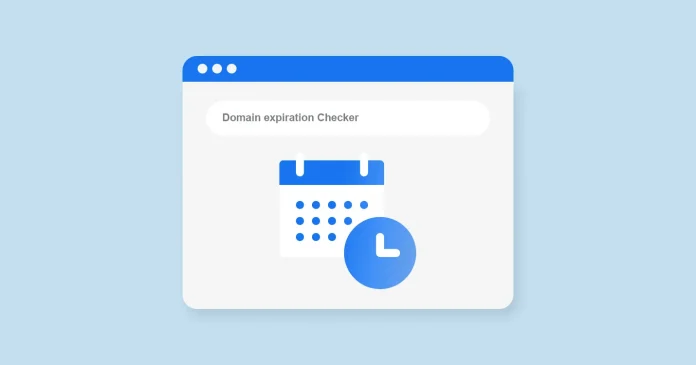If you own a website or want to create one, you will need a unique URL address for it – it can be obtained by buying a domain. Note that domain addresses are sold for some period of time (as a rule, ownership lasts a few years and then expires if you don’t pay for the next period.
A domain expiration date is when the domain registration ends, and the domain will become available for others to purchase. Failing to renew your domain before it expires could result in losing your website, and all the traffic and revenue that come with it. In this blog post, we’ll discuss what to take into consideration when looking for a domain expiration date.
To start with, we should define what a domain registrar is.
What is a domain registrar?
The domain registrar is the company that you used to register your domain name. They are responsible for managing your domain, and they will send you reminders when your domain is about to expire. If you don’t know who your registrar is, you can do a Whois lookup to find out. This information is publicly available and will show you the registrar’s contact information.
When was the domain registered?
Knowing the registration date of a domain can help you determine when it will expire. Most domains are registered for a period of one to ten years, depending on the provider and the domain extension. For example, a .com address can be registered for up to ten years, while a .org address can be registered for up to five years.
What to do if the desired domain is not free? You can search for similar options using an expired domain checker. There is a chance that you can discover a domain with another extension.
When you are looking for dates, there are a few types of variables that may be displayed:
- Registration Date refers to the date when a domain name was first registered by its owner.
- Registration Period. Domain registration periods vary based on the top-level domain (TLD) and the registrar used. Typically, a domain can be registered for a period of one to ten years. Some registrars may offer longer or shorter registration periods.
- The expiration date shows when a domain registration will end. The expiration date is determined based on the registration period selected by the domain owner. If the domain owner does not renew the domain before the expiration date, the domain will become available for registration by others.
- Creation Date. The creation date is the date when a domain was first registered. This date is important because it can help establish the priority of ownership in cases of trademark disputes or other legal issues.
- Transfer Date. A transfer date is a date when a domain name is transferred from one registrar to another. This can occur for a variety of reasons, such as when the domain owner decides to switch registrars or when a registrar goes out of business.
- Renewal Date. The renewal date is the date when a domain must be renewed to avoid expiration. Domain owners typically receive reminders from their registrar about the renewal date and can renew the domain any time before the expiration date.
Understanding these peculiarities of domain registration dates is vital for website owners and those interested in purchasing a domain. It is essential to keep track of the expiration date and renewal date to ensure that a domain does not expire and becomes available for registration by someone else. Additionally, understanding the creation date and transfer date can help establish ownership of a domain name in legal disputes.
Wrapping up
knowing the domain expiration date is crucial if you want to keep your website online. By considering the domain registrar, registration date, renewal period, automatic renewal option, and redemption fees, you can ensure that you renew your domain before it expires and avoid losing your website. Besides, it can help you find out when a taken domain can become available – you will see the expiration date. If there is no actual website with such a URL, your chances of becoming the domain’s next owner are pretty high.
FAQ
The renewal period is the amount of time you have to renew your domain after it has expired. This period can range from a few days to several weeks, depending on the registrar. During this period, you can renew your domain for the standard renewal fee, and you won’t lose your domain.
Some registrars offer an automatic renewal option, which will automatically renew your domain before it expires. This can be a convenient option, as it ensures that your domain will be under your own even if you forget to pay manually – the funds will be deposited automatically. However, be sure to check the terms and conditions of the automatic renewal option to ensure that you understand how it works and how much it costs.
If you fail to renew your domain during the renewal period, it will enter a redemption period. During this period, you can still renew your domain, but you will have to pay a redemption fee in addition to the standard renewal fee. The redemption fee can be quite high, so it’s essential to renew your domain before it expires.


